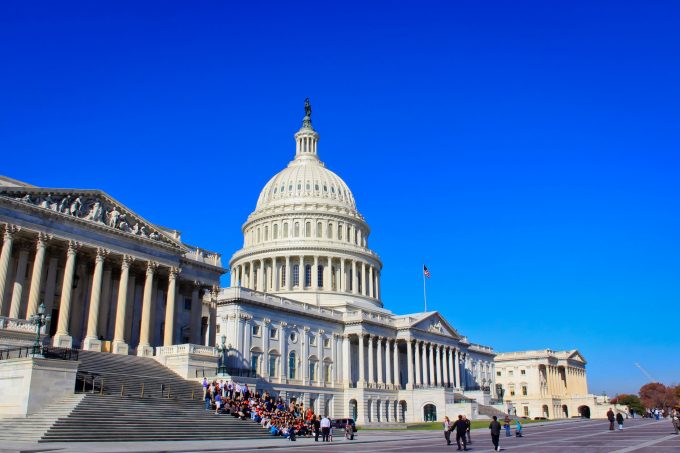Enhancing the safety of dangerous goods shipments
TT Club’s MD loss prevention, Mike Yarwood, outlines crucial changes to IMDG Code regulations coming ...

Shipping lines continue to rail against the introduction of new legislation in the US that is aimed at curbing some of the excesses that both importers and exporters have complained about over the past two years.
A Senate version of the Ocean Shipping Reform Act is now under consideration in the US upper house, introduced by senators Amy Klobuchar and John Thune, a Democrat and a Republican. The bill enjoys significant cross-party support.
However, John Butler, the president and CEO of liner ...
Trump tariffs see hundreds of cancelled container bookings a day from Asia
'To ship or not to ship', the question for US importers amid tariff uncertainty
'Disastrous' DSV-Schenker merger would 'disrupt European haulage market'
'Chaos after chaos' coming from de minimis changes and more tariffs
Forto 'sharpens commercial priorities' as it lays off one-third of staff
List of blanked transpac sailings grows as trade war heats up and demand cools
EC approves DSV takeover of DB Schenker
Overcapacity looms for ocean trades – with more blanked sailings inevitable
Amazon Air’s metamorphosis: 'a different air cargo unit from two years ago'
Shippers in Asia restart ocean shipment bookings – but not from China
India withdraws access for Bangladesh transhipments, in 'very harmful' decision
'Tariff hell' leaves industries in limbo – 'not a great environment to plan'

Comment on this article
James Binnie
February 07, 2022 at 10:42 pmSome thoughts from an ancient Master Mariner with some container terminal operations experience.
The problem is NOT the shipping lines who really do not like having their ships queued outside ports for days (weeks) at a time. Ships are like any other form of transport, they only make money when travelling from point to point fully loaded with cargo. Waiting outside port is a cost which will be passed on to the end customer – you and I.
US need to sort out their terminal operations and the inland road/rail transport systems which are required to support the shipping lines in moving containers efficiently.
Terminals should immediately start handling ships, road trucks and rail on a continuous 7×24 hour basis throughout the year and inland operations including depot operators, warehouses etc must do the same. If the likes of Amazon can do it so can the terminals and inland transport operators. The additional costs will be offset by reductions in shipping freight costs when port delays are minimised into hours instead of days (or weeks as at present).
Having said all of the above the shipping lines have also contributed to the problem by greatly increasing ship sizes to 24000teu which has caused large peaks and troughs in container volumes through ports worldwide which the landside capacities still cannot cope with.